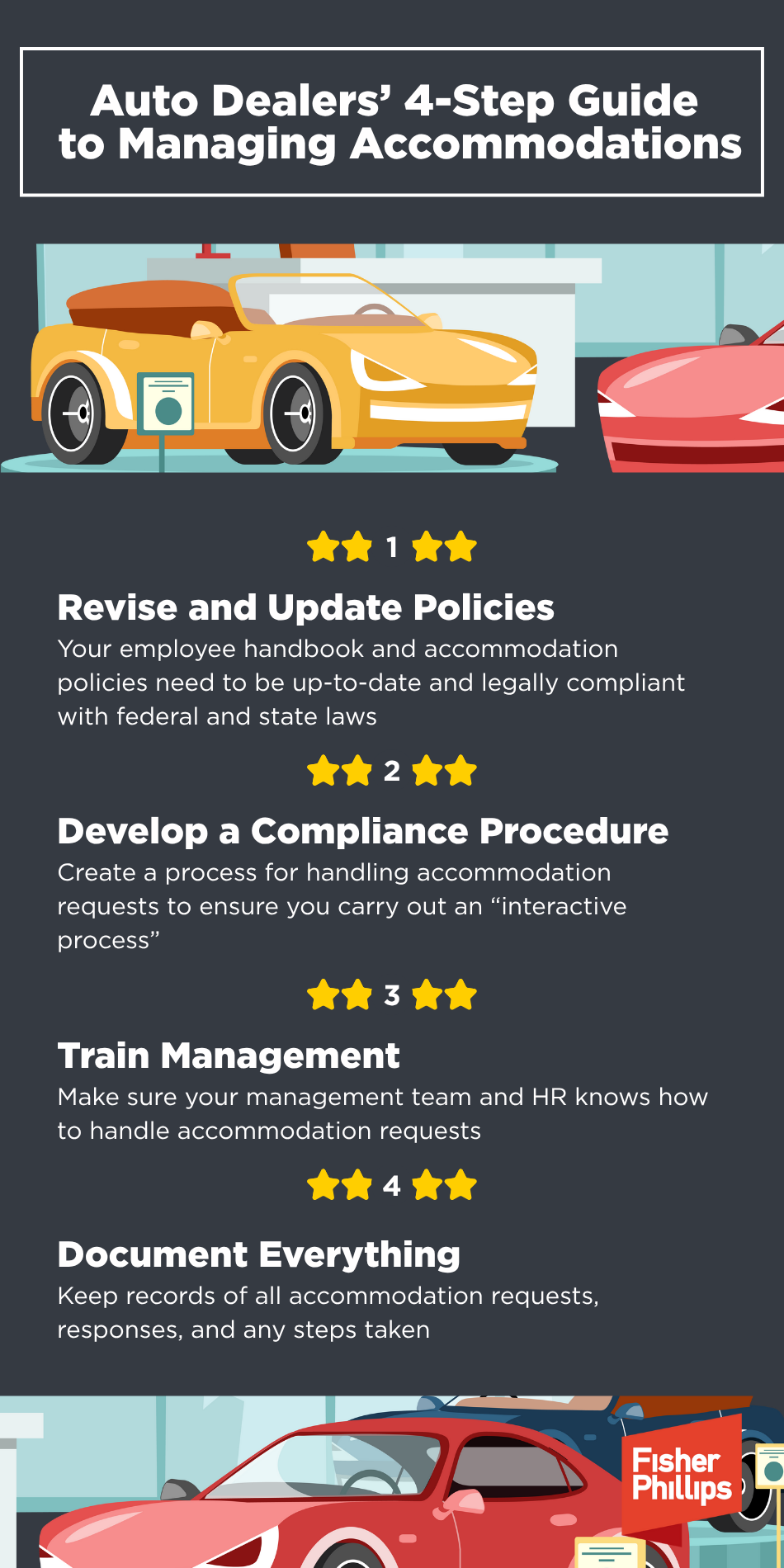The EEOC recently filed a federal lawsuit against a Maryland auto dealer alleging that it denied a parts department worker a reasonable accommodation – specifically, allowing him a service dog at work for his PTSD – and then constructively discharged him. The May 21 lawsuit filed against Criswell Chevrolet, Inc. can offer your dealership some lessons about compliance with the Americans with Disabilities Act (ADA) and how to handle requests for reasonable accommodations. What does your dealership need to know about this case?
What Happened?
- In its lawsuit, the EEOC alleges that a parts department worker, a military veteran, informed the dealership about his service-related PTSD and requested permission from his supervisor to bring a service dog to work as an accommodation, based on his doctor’s recommendations.
- The EEOC claims that Chevrolet did not follow up with the employee and the employee followed up with Human Resources.
- The lawsuit further alleges that Human Resources denied the request without offering any alternative accommodations or further follow-up.
- The EEOC claims that because of the dealership’s alleged failure to accommodate, the employee’s symptoms worsened at work and he felt forced to resign (also known as a “constructive discharge”).
Early Days
It’s important to note that the case is still in its early stages. The allegations recited above are just those – allegations. Chevrolet has until later July to respond to the lawsuit and defend itself, so we’re only hearing one side of the story. But regardless of the merits of the claim, the lawsuit itself provides dealers with some helpful lessons about how to handle requests for reasonable accommodation from applicants and workers alike.
What Should You Do? Your 4-Step Guide
1. Revise and Update Policies: Make sure your employee handbook and accommodation policies are up-to-date and compliant with federal and state laws. This includes informing applicants that they are entitled to request a reasonable accommodation during the application process.
2. Develop a Compliance Procedure: Create a process for handling accommodation requests, including those requesting service animals as an accommodation. Include a mechanism by which employees can report issues or grievances. Your goal should be to carry out an “interactive process” that involves conversations with the employee, a review of the position and the accommodation requested, a determination about whether the request would cause an undue hardship, and perhaps medical documentation (as necessary).
3. Train Management: Make sure your management team and HR knows how to handle accommodation requests and understand the importance of engaging in the interactive process with employees. Include education on retaliation and protecting employees who make such requests or report issues.
4. Document Everything: Keep record of all accommodation requests, responses, and any steps taken. This can be the key to building a defense against an EEOC or private lawsuit.
Conclusion
We’ll continue to monitor this case and provide updates as it develops. If you have questions, please subscribe to Fisher Phillips’ Insight System to get the most up-to-date information directly to your inbox or contact or any attorney on our Automotive Dealership Team.
Law clerk Nairuth Borath contributed to authoring this Insight.




